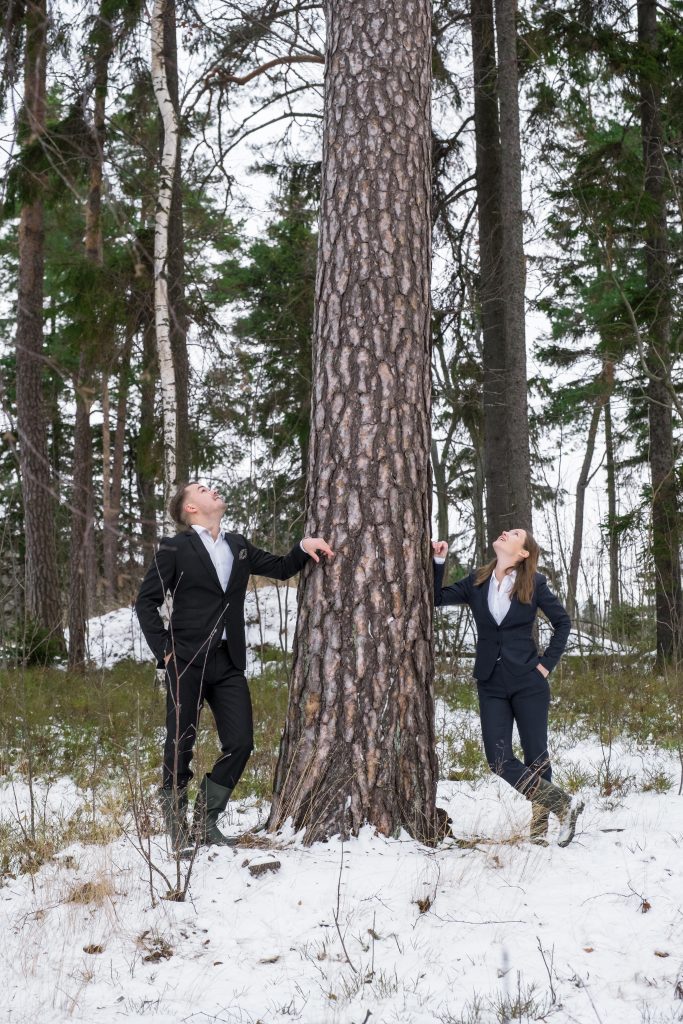A competitive, innovative and investment-making bioproduct economy
Replacing fossil raw materials with bio-based raw materials is a huge opportunity for the Finnish bioproduct industry. Commercialising the solutions requires, among other things, new kinds of thinking and long-term development work.
Text Outi Rantala Photo Joona Raevuori
The forest and bioproduct industry strategic consulting firm Vision Hunters helps companies make their bioproduct processes more efficient and develop their business as well as guides them through the various stages of their solutions’ commercialisation process. Independent and fact-based advising has an important role in developing the business of new bioproducts.
In theory, all products made using fossil raw materials can be replaced with bio-based products, but the commercial viability and scaling of bio-based products requires major investment.
The new obligations of the financial markets speed up the transition, where the taxonomy and companies’ new reporting requirements play a central role. However, the commercialisation of new bioproducts offers other kinds of challenges: the development of new raw materials, processes and markets requires long-term commitment and there are no shortcuts.
“The need for capital is huge, and, in order to reach the targets of the green transition, all investments must support the phasing out of fossil raw materials. Bioeconomy innovations are one of the key enablers of the green transition,” says Iris Ollila, Managing Director of Vision Hunters.
Vision Hunters’ Consultant Samuel Leppänen works in the development of new products and business. Among Nordic countries, there is an active collaboration network, where companies, universities and research institutes continuously develop new bioproducts for different end uses. The Nordic countries, in particular Finland, are pioneers in the bioproduct industry. Collaboration is important, as innovations for industrial-scale production are not created without long-term research and development work and the commitment of companies at the strategic level.
“In industrial-scale factory projects, investment costs are high and there is always uncertainty about the returns on investments in new products,” Leppänen says.
Companies seek to improve profitability by using raw materials more efficiently and enhancing processes.
“For example, the use of wood can be made more efficient by also using part of the lignin and hemicellulose, which can replace fossil raw materials such as glues, carbon black and industrial chemicals. The philosophy of the circular economy must be present in all processes,” Ollila says.
Expertise and well-managed forests as a strength
In particular, Finland’s extensive expertise and long traditions in the forest industry and education lay a good foundation for a competitive bioproduct economy.
“Foreign financiers are showing growing interest in companies in the industry and many multinational projects have been launched in Finland in recent years, including factories for the cellulose-based textile industry,” Leppänen says.
Vision Hunters’ Consultant Samuel Leppänen and Managing Director Iris Ollila say that wood must be used where effectiveness and value added are the highest.
As for the raw materials themselves, Finland is also in a good position. Finnish forests are well-managed and there is investment in the continuous development of sustainable forest management.
The geopolitical change caused by Russia’s attack on Ukraine has affected the market for softwood, creating a reality of two markets. Nordic certified softwood is now even more sought after, as the demand for biomaterials, especially wood, has grown. This growth has been boosted by demand in new industries, such as the metal and chemical industries, that are under pressure to replace fossil raw materials due to environmental targets. The energy crisis has also significantly increased demand.
“Maintaining and developing a competitive operating environment plays a key role in the development of a high value-added bioproduct industry in Finland. The ability to add value as well as the legislation will eventually determine where wood and other bio-based raw materials are used. Thinking about things critically is also a good idea. It is important to assess what end uses have the greatest effectiveness,” Leppänen and Ollila say.
This article has originally been published in Finnish in the Bioeconomy advertorial in Helsingin Sanomat in December 2022. Link to full publication.
